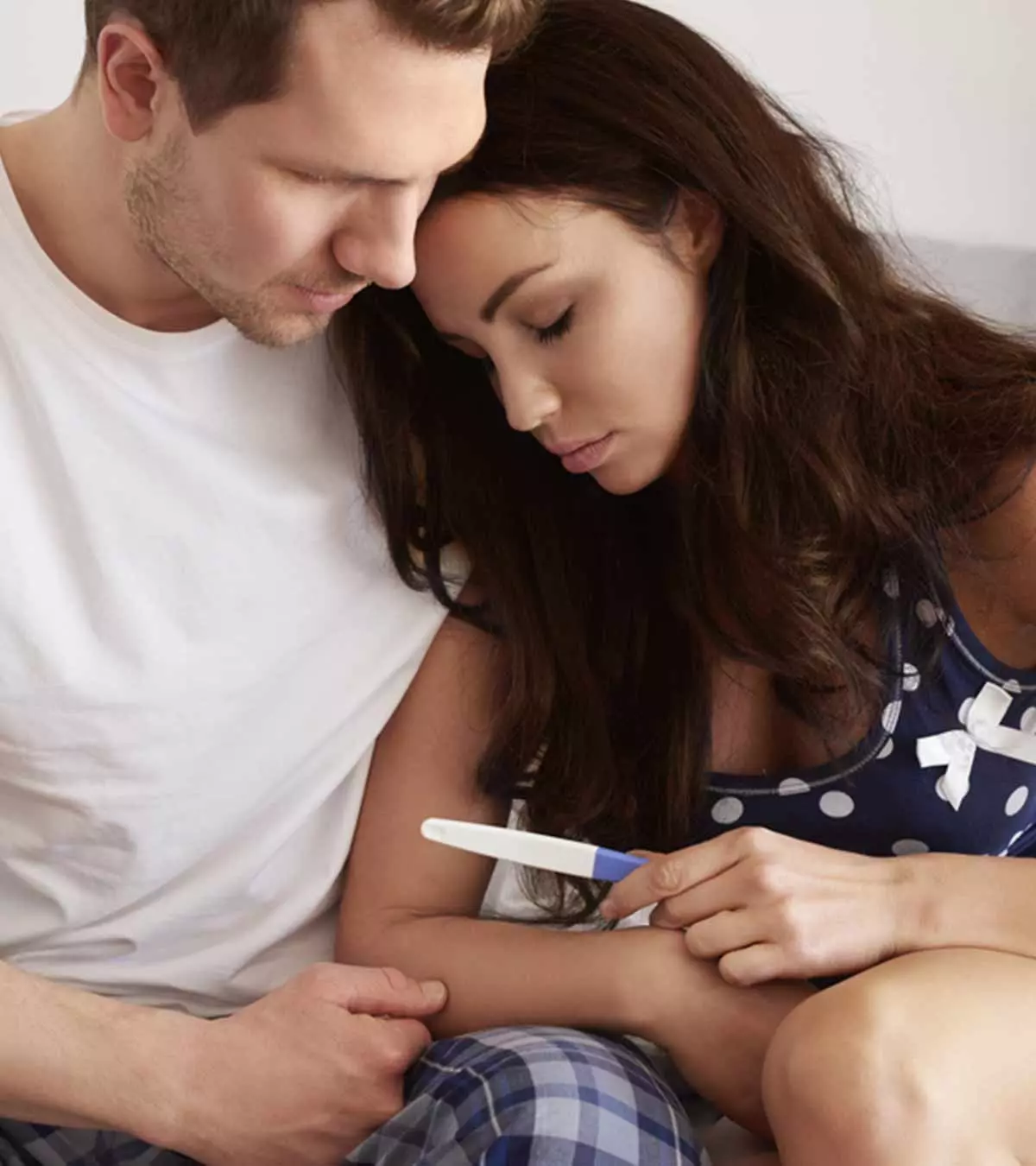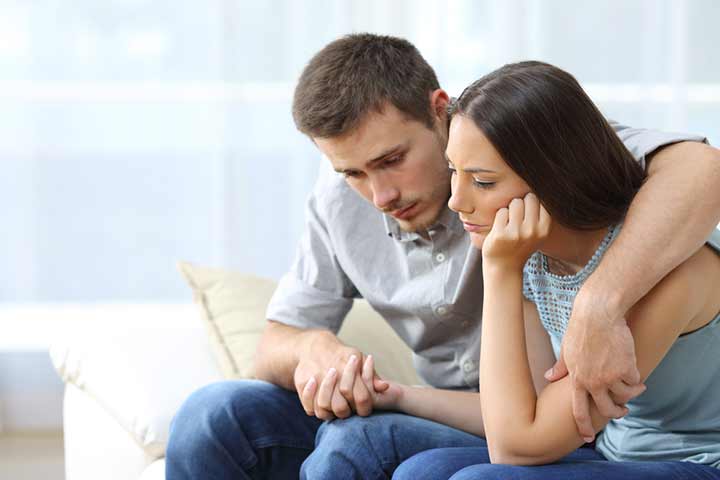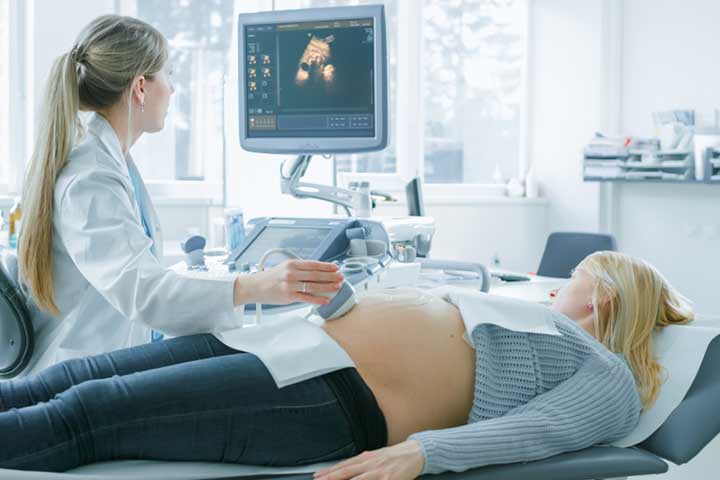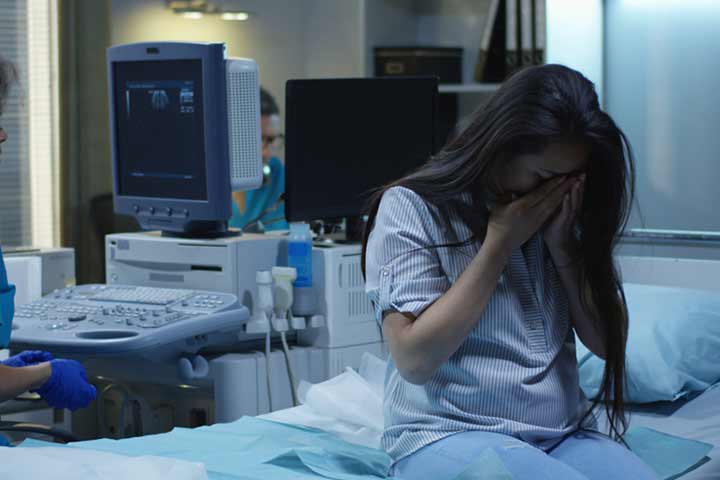
Image: Shutterstock
When you get the news of your pregnancy, it can be a very exciting time. Most couples try for almost one year before they successfully conceive (1). They may face several challenges and hurdles to get those two lines on a stick, but when it finally happens, their joy knows no bounds. However, when a couple gets pregnant, there’s a fear looming over them, at least during the first trimester. It’s scary and overwhelming, but it’s a thought that’s constantly there, and that is — miscarriage.
It’s natural for you to worry about having a miscarriage. Research suggests that almost 10-20% of known pregnancies end in miscarriage. The rest of the miscarriages occur so early in the pregnancy that a woman doesn’t even know that she’s pregnant (2).
Image: Shutterstock
If you’ve ever been through a miscarriage or know someone who has experienced it, you know the pain that comes with it. You might be terrified to go through something like that, but in the advent of such an unfortunate loss, it’s best to be aware of the signs of a miscarriage and the possible questions that you may have regarding it. If you’re wondering what to look out for, scroll below to find out all the answers you need to know.
What Are The Signs Of A Miscarriage?
Image: Shutterstock
The first and most common sign of a miscarriage includes bleeding and cramping. You may also experience lower backache that can be mild or severe. However, remember that spotting and slight bleeding are common even in successful pregnancies during the first trimester. Bleeding and cramping can also be signs of other pregnancy issues, such as an ectopic pregnancy (3). If you experience any of these signs, consult your OB-GYN right away so they can guide you.
What Causes Early Pregnancy Loss?
Image: Shutterstock
While the exact cause of a miscarriage is not known, studies suggest that smoking and drinking alcohol may increase the risk of an early pregnancy loss. However, activities like exercising, working, doing the deed, or morning sickness are not causes of a miscarriage. Women tend to blame themselves when something this unfortunate occurs, but it’s not your fault (4).
What Should You Do If You Suspect A Miscarriage?
Image: Shutterstock
Bleeding and cramping are common during the first trimester of pregnancy, but even the slightest occurrence of these symptoms should be brought to the notice of your healthcare provider. If you suspect a miscarriage, you will most likely have a physical exam, after which your doctor will ask you questions regarding your bleeding and abdominal pain (5).
After that, an ultrasound is conducted to check if your baby’s heart is still beating. You may even have to take a blood test that checks your hCG levels. Deceased levels of hCG could indicate that you’ve had a miscarriage. However, ultrasound has to be done to confirm the loss of pregnancy (6).
What Treatment Should You Get?
Image: Shutterstock
If you’ve just had a miscarriage, you probably have traces of the foetal tissue in your uterus, which has to be removed. The procedure is called Dilation and Curettage or D&C (7). If there are no further complications, the procedure is fairly simple, and the chances of serious complications are very low (8).
How Long Does It Take To Recover From A Miscarriage?
Image: Shutterstock
Typically, it takes about two weeks to fully recover from a pregnancy loss. Speak to your doctor about the same to be sure. You will probably be told to avoid inserting anything into yourself down there for a while — including tampons. You will also have to hit a pause on lovemaking. These measures are taken to prevent infections (9).
How Soon Can You Get Pregnant After A Loss?
Image: Shutterstock
You can start trying to have another baby as soon as your next ovulation cycle. Medically, you are ready after two weeks (10). However, check your mental health and make sure you and your partner are prepared to start trying again before you jump into it.
Losing a baby can be soul-crushing. It’s a loss that can take a toll on you — mentally, emotionally, and physically. Therefore, take all the time you need to recover and be prepared to move on and heal from your devastating loss before you start trying again.
Seeking therapy from a mental health professional can really help you and your partner cope with your loss. Most importantly, quit blaming yourself. Because what happened was definitely unfair, but it was not your fault! We hope this article cleared your doubts about a miscarriage. Share it with your friends and family to help them out a little bit!



















